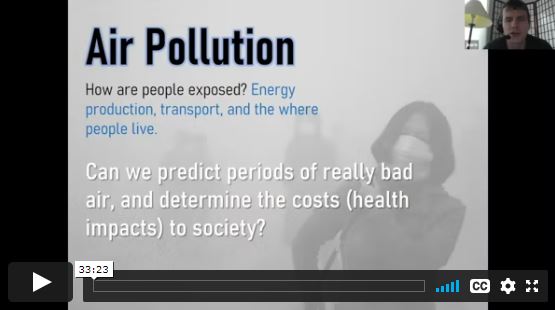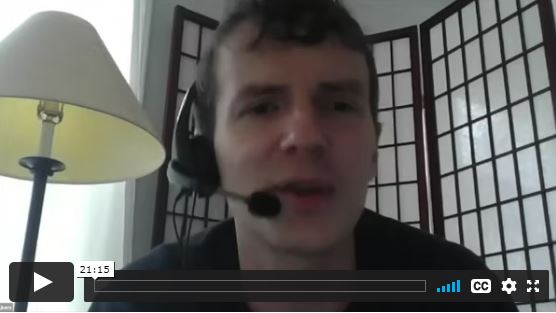Drought Can Take Your Breath Away
By The Editors
February 26, 2021
From The Staff Agriculture Communications Environment Human Ecology
Human exposure to pollutants from fossil fuel power plants causes a variety of health impacts, leading to an estimated 109,000 premature deaths in the United States annually, or 1 in 25 deaths. At the same time, droughts are often associated with weather conditions (such as elevated air temperatures or stagnant air) that allow for the build-up of higher concentrations of fine particulate matter and ozone in the air.
When drought disrupts electric power system operations—by reducing the availability of hydropower—power companies increase their reliance on fossil fuel power plants, which emit even more pollutants. Jordan Kern uses computational modeling to examine the behavior of these connected systems and provide assessments of physical, environmental, and financial risk. He is an assistant professor in the Department of Forestry and Environmental Resources at North Carolina State University and his research focuses on better understanding interactions between natural and human engineered and economic systems.
On January 26, 2021, Sigma Xi, The Scientific Research Honor Society, hosted a virtual presentation by Kern as part of its Pizza Lunch series (video, follow-up interview, and curated live Tweets below). As part of his talk, Kern discuss a new research project funded by the National Science Foundation that aims to explore how drought, electric power systems, and air quality interact to create periods of high human health risk (“bad air days”), and how these interactions will change in the future under climate change.


American Scientist Comments and Discussion
To discuss our articles or comment on them, please share them and tag American Scientist on social media platforms. Here are links to our profiles on Twitter, Facebook, and LinkedIn.
If we re-share your post, we will moderate comments/discussion following our comments policy.